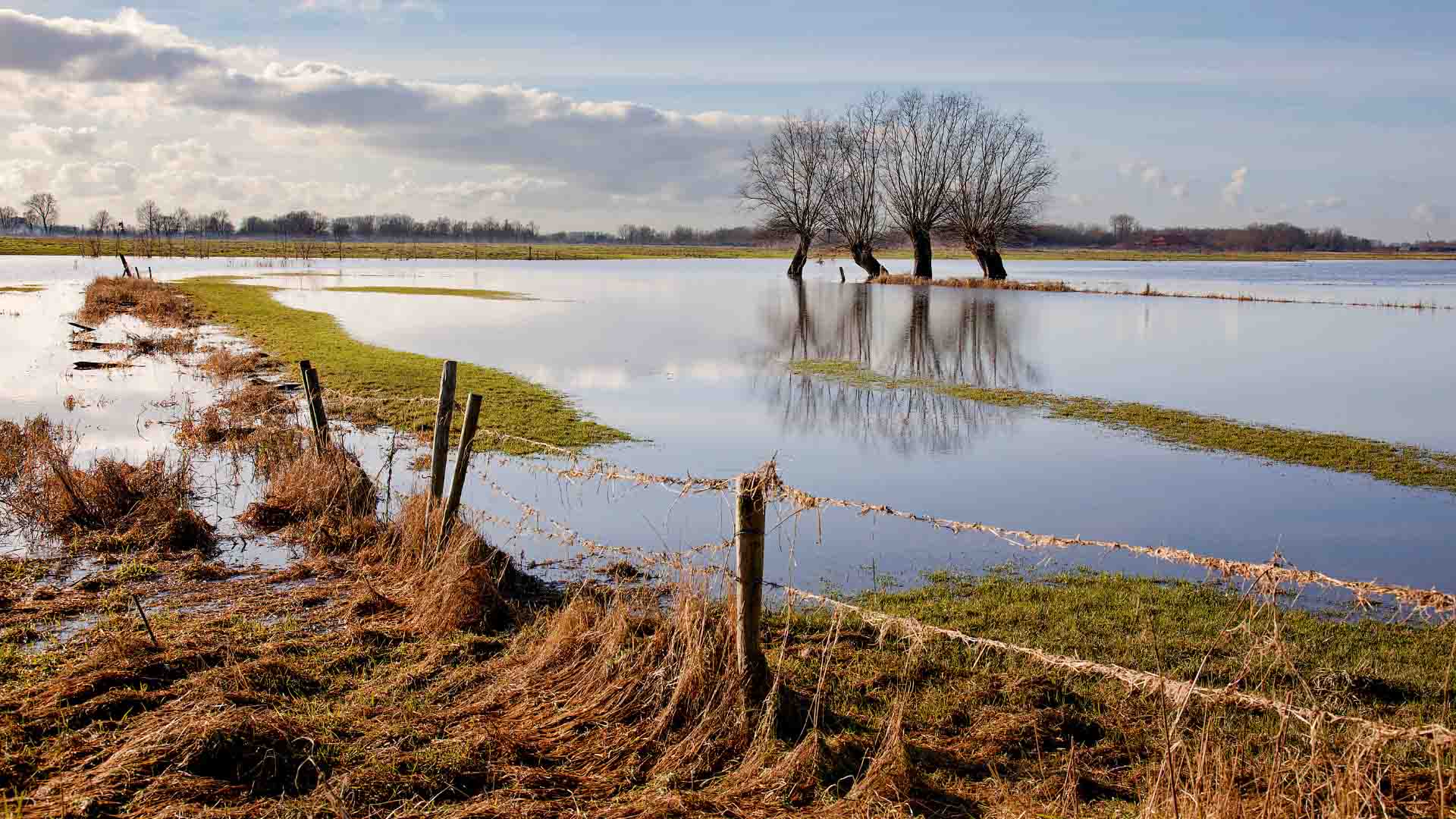
Why are we tackling this issue?
Flooding is one of the greatest challenges facing homes and businesses across the UK. In England alone, more than 5 million properties – one in six – are at risk of flooding.
Recent analysis by MORE THAN, shows that the average number of claims received for weather-related incidents have risen by 58% over the last three years, with the average flood claim costing around £39,000.
Extreme weather is making the problem of flooding in the UK worse, causing both financial and emotional stress for homes and businesses up and down the country. But this doesn’t need to be the case, by working together with different organisations we can use the power of nature to increase flood resilience.
What does our new partnership involve?
We will work together with GWT on an extensive NFM programme to help reduce flood risk across Cheltenham and Gloucester, an area which our data identifies as having a high flood risk with more than 23,500 homes potentially vulnerable to flooding each year.
Our new partnership will see £400,000 invested in nature-based interventions to help limit the impact of flooding, improve the resilience of local communities and help protect local habitats.
We’ll fund a number of actions which help collect and slow surface water run-off to reduce flood risk, as well as engaging local communities to raise knowledge and awareness.
As part of the partnership we’ll:
- Construct swales and attenuation basins (ponds which collect and store rainwater)
- Establish new wetlands
- Create rain gardens and green verges in urban environments
- Promote and pilot Sustainable Urban Drainage schemes (SUDs) such as driveway de-paves
- Engage local residents, business and schools on flood-risk and habitat creation
- Develop a toolkit to identify new areas that can be managed for biodiversity and flood resilience
We’re excited to be partnering with GWT due to their experience using nature-based solutions to reduce the risks of climate change and their strong relationships with the Environment Agency and local councils to identify opportunities to protect people and the environment.
By committing to a 2-year project plan we can build community relationships to affect real change and assess the impact of these activities on local communities.
Keep an eye out across the next few weeks, as we continue to share our stories around Social Impact & ESG and how we are committed as a business to build resilient communities.
Reference: National Assessment of Flood Risk report conducted by The Environment Agency.
